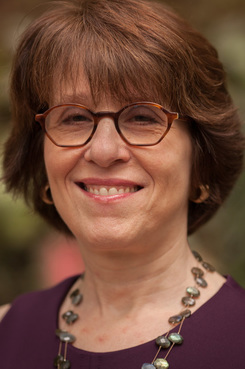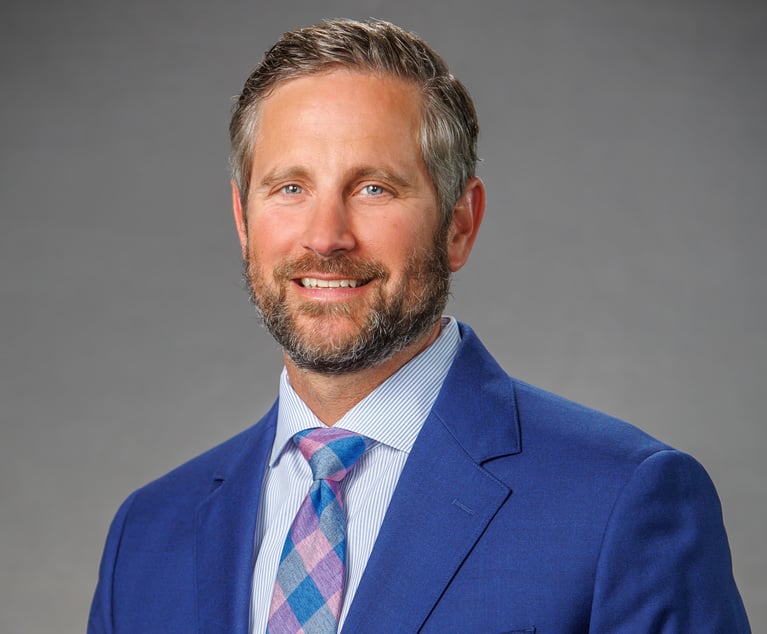When It Comes to Sleep You Can't Trick Mother Nature
I thought that I was one of those people who “needed her sleep” as there have always been others in my orbit who could, seemingly, function on far less than me. In my ignorance, I thought it was a preference rather than a requirement.
May 15, 2019 at 12:53 PM
8 minute read
 Dena Lefkowitz
Dena Lefkowitz
If I told you that I have a product that will give you more energy, help maintain a healthy weight and improve your mood and performance at work, would you be interested? Might you pay money to get it? The good news is it's free and within your control to get an adequate supply. The product is …
Sleep.
But not just any kind of sleep. I mean adequate, health-promoting sleep. If you guard this remarkable replenishing resource zealously and give your body enough, the benefits are tremendous.
When “Breaking Bad” was in its original run on television, I eagerly awaited each episode. In order to enjoy it, however, I had to wait an extra day because it aired at 10 p.m. on Sunday nights. Because it was often disturbing, I couldn't risk its startling imagery or brutal violence so close to bedtime. It was hard enough to fall asleep on a Sunday night.
I thought that I was one of those people who “needed her sleep” as there have always been others in my orbit who could, seemingly, function on far less than me. In my ignorance, I thought it was a preference rather than a requirement. Two recent news stories and a conversation with an expert have shifted my understanding of the role sleep plays in our lives and convinced me that no one is immune to the effects of sleep deprivation.
This past February, attorney Cameron Schladenhauffen died at age 31. The death was ruled accidental because of a mix of drugs found in his system. His father was quoted in an article that appeared in The American Lawyer March 26. He said that “… his son had been experiencing acute stress in the year leading up to his death. Schladenhauffen said his son had described receiving assignments … with deadlines that were difficult to meet, sometimes causing him to work through the night. He said his son had told him he pulled two all-nighters in a row to finish his work on one occasion.”
The same publication reported on April 15, about the death of attorney Paul Rawlinson who “temporarily stepped down as global chairman of Baker McKenzie following health issues caused by exhaustion.”
There were likely many factors that caused these sad, untimely deaths. What struck me about both stories was the exhaustion factor. As a coach who helps clients perform better at work, I know that these lawyers were not anomalies. Many professionals give up sleep believing they will have greater success or to meet expectations from supervisors.
To better understand the role of sleep, I interviewed David Dinges, professor and director of the Unit for Experimental Psychiatry and Chief of the Division of Sleep & Chronobiology in the Department of Psychiatry at the University of Pennsylvania School of Medicine. Dinges is an internationally recognized expert in sleep and has consulted for NASA and the U.S. Department of Transportation. His focus is on “how to help otherwise healthy humans avoid catastrophe,” which he described as “failing by pushing ourselves too hard.”
Dinges explained how the brain and body respond when sleep is denied. As diurnal beings, our bodies and minds expect to be asleep at night and awake during the day. The biological response to denial of sleep is that the brain thinks it's starving and compels the body to consume high fat foods. Look around any place where people are working the night shift and you will likely see pizza, doughnuts and other high fat, high calorie items, according to Dinges. Obesity is one of the health issues associated with sleep deprivation as are lapses of attention, decreased judgment, slowed working memory, reduced cognitive throughput and depressed mood.
Dinges points out that “a lot of workplaces have become 24/7 particularly for professionals where there isn't a time clock you punch. The prevailing philosophy is get it done, and do whatever you need to do to get it done, but the cost of that can be quite severe for some individuals particularly when the demand is chronic and unpredictable in terms of when the end point is reached. That adds an additional stress. The more people know when things start and stop and where they'll get recovery, the more control they feel they have and the less stress they feel. But the minute we erase those natural boundaries out of this bizarre belief that somehow we're going to do our best work when we're utterly and completely exhausted is just simply naive.”
Have you ever met someone who claims to be able to function on few hours of sleep? Dinges has tested such people and sees the same “deterioration, and the same inappropriate functioning and failure to be able to concentrate, cognitive slowing and emotional liability that we see in everyone else.” Dinges calls the idea that four hours of sleep is adequate “a delusion.”
Regarding all-nighters, Dinges said, “There is a need to understand that nobody is capable of going for days on end without sleep, under high stress, without paying a price for that. And the price cannot be paid through your salary. It's paid through your biology and behavior and there's no way around that.”
I've often heard people say “I'll sleep when I'm dead” and asked Dinges for his thoughts: “That statement would suggest they've got a significant thinking problem, a cognitive problem. They apparently don't understand that you have to sleep to stay alive. If you want to compete as an athlete, or as a business [person], or as a scientist, you damn well need to get your sleep. It's fine to push yourself hard, to work hard. I work hard … but I make sure I get my sleep and I make sure my diet is healthy. So, I don't give up the health-promoting behaviors … Recovery isn't just sleep. It's also eating healthy, seeing your family and it's all the things that make life rewarding and remind you that you work hard because you've got other people you care about and the quality of life you want to maintain.”
He described the warning signs that you are not getting sufficient sleep: “Stress response, depression, the feeling that I'm overwhelmed, that there's no joie de vivre in any day.”
Although I wrote at the start of this article that the product to improve your life is free, there will be some trade-offs if you need to make time for sleep. According to Dinges, “the recommended amount of sleep to maintain health in nearly every category from cancer to all sorts of diseases … is seven hours a night for a healthy adult.” It can be broken up into five or six hours of night sleep coupled with a nap, but it needs to add up to seven hours.
If you have instances of missing sleep, plan your recovery. Discuss it with your boss, your partner, your spouse and make arrangements to recuperate from sleep loss. As Dinges said, “Open discussions about how to recover, how to keep going aren't signs of weakness, those are smart signs for strategizing how to get the job done.”
If you are not getting seven hours of sleep, think about what you can give up to get more and take a good look at how you spend time, and what you can delegate or dump. Also examine discretionary time and consider what really matters to you. Dinges mentioned one of my favorite pastimes: “Frankly,” he says “there's no television program that's worth missing your sleep or not getting your work done.”
As much as I liked “Breaking Bad,” I couldn't argue with biology.
Dena Lefkowitz is a certified professional coach who helps clients improve networking and marketing skills, make successful career transitions, and develop the skills necessary to lead. Having practiced law for 25 years in private practice and in-house, she understands the challenges new and seasoned lawyers face. Lefkowitz has successfully coached a best-selling author, lawyers, accountants and chief executives. Firms have also hired Lefkowitz to work directly with lawyers at all phases of their careers to improve performance and increase their contributions to the firm. For more information, visit www.achievementbydesign.com.
This content has been archived. It is available through our partners, LexisNexis® and Bloomberg Law.
To view this content, please continue to their sites.
Not a Lexis Subscriber?
Subscribe Now
Not a Bloomberg Law Subscriber?
Subscribe Now
NOT FOR REPRINT
© 2025 ALM Global, LLC, All Rights Reserved. Request academic re-use from www.copyright.com. All other uses, submit a request to [email protected]. For more information visit Asset & Logo Licensing.
You Might Like
View All

Products Liability: The Absence of Other Similar Claims—a Defense or a Misleading Effort to Sway a Jury?


K&L Gates Sheds Space, but Will Stay in Flagship Pittsburgh Office After Lease Renewal
Trending Stories
- 1'It's Not Going to Be Pretty': PayPal, Capital One Face Novel Class Actions Over 'Poaching' Commissions Owed Influencers
- 211th Circuit Rejects Trump's Emergency Request as DOJ Prepares to Release Special Counsel's Final Report
- 3Supreme Court Takes Up Challenge to ACA Task Force
- 4'Tragedy of Unspeakable Proportions:' Could Edison, DWP, Face Lawsuits Over LA Wildfires?
- 5Meta Pulls Plug on DEI Programs
Who Got The Work
Michael G. Bongiorno, Andrew Scott Dulberg and Elizabeth E. Driscoll from Wilmer Cutler Pickering Hale and Dorr have stepped in to represent Symbotic Inc., an A.I.-enabled technology platform that focuses on increasing supply chain efficiency, and other defendants in a pending shareholder derivative lawsuit. The case, filed Oct. 2 in Massachusetts District Court by the Brown Law Firm on behalf of Stephen Austen, accuses certain officers and directors of misleading investors in regard to Symbotic's potential for margin growth by failing to disclose that the company was not equipped to timely deploy its systems or manage expenses through project delays. The case, assigned to U.S. District Judge Nathaniel M. Gorton, is 1:24-cv-12522, Austen v. Cohen et al.
Who Got The Work
Edmund Polubinski and Marie Killmond of Davis Polk & Wardwell have entered appearances for data platform software development company MongoDB and other defendants in a pending shareholder derivative lawsuit. The action, filed Oct. 7 in New York Southern District Court by the Brown Law Firm, accuses the company's directors and/or officers of falsely expressing confidence in the company’s restructuring of its sales incentive plan and downplaying the severity of decreases in its upfront commitments. The case is 1:24-cv-07594, Roy v. Ittycheria et al.
Who Got The Work
Amy O. Bruchs and Kurt F. Ellison of Michael Best & Friedrich have entered appearances for Epic Systems Corp. in a pending employment discrimination lawsuit. The suit was filed Sept. 7 in Wisconsin Western District Court by Levine Eisberner LLC and Siri & Glimstad on behalf of a project manager who claims that he was wrongfully terminated after applying for a religious exemption to the defendant's COVID-19 vaccine mandate. The case, assigned to U.S. Magistrate Judge Anita Marie Boor, is 3:24-cv-00630, Secker, Nathan v. Epic Systems Corporation.
Who Got The Work
David X. Sullivan, Thomas J. Finn and Gregory A. Hall from McCarter & English have entered appearances for Sunrun Installation Services in a pending civil rights lawsuit. The complaint was filed Sept. 4 in Connecticut District Court by attorney Robert M. Berke on behalf of former employee George Edward Steins, who was arrested and charged with employing an unregistered home improvement salesperson. The complaint alleges that had Sunrun informed the Connecticut Department of Consumer Protection that the plaintiff's employment had ended in 2017 and that he no longer held Sunrun's home improvement contractor license, he would not have been hit with charges, which were dismissed in May 2024. The case, assigned to U.S. District Judge Jeffrey A. Meyer, is 3:24-cv-01423, Steins v. Sunrun, Inc. et al.
Who Got The Work
Greenberg Traurig shareholder Joshua L. Raskin has entered an appearance for boohoo.com UK Ltd. in a pending patent infringement lawsuit. The suit, filed Sept. 3 in Texas Eastern District Court by Rozier Hardt McDonough on behalf of Alto Dynamics, asserts five patents related to an online shopping platform. The case, assigned to U.S. District Judge Rodney Gilstrap, is 2:24-cv-00719, Alto Dynamics, LLC v. boohoo.com UK Limited.
Featured Firms
Law Offices of Gary Martin Hays & Associates, P.C.
(470) 294-1674
Law Offices of Mark E. Salomone
(857) 444-6468
Smith & Hassler
(713) 739-1250





